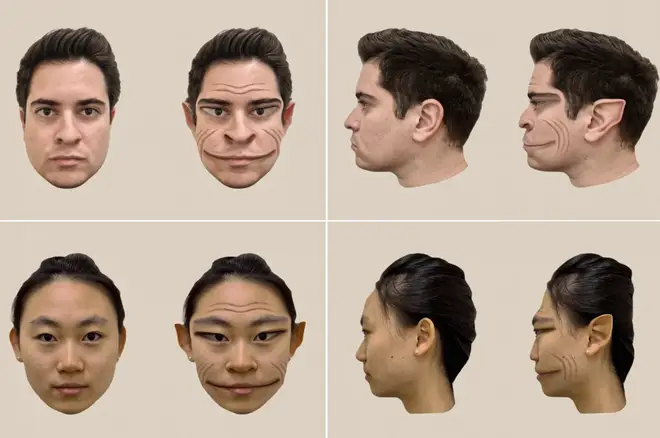
Matthew Wright 7am - 10am
22 March 2024, 08:18

A US truck driver woke up one morning horrified to see his flatmate’s facial features ‘stretched’ as if he had the face of a demon.
Victor Sharrah, 59, was in his flat in Clarksville Tennessee when he saw his flatmate walking to the bathroom and his face appeared horribly distorted.
“It was like something out of a Star Trek movie, like a demon face,” he said.
He described the room-mate’s appearance as ‘goblin-like’ with a distended mouth, stretched eyes, flared nostrils, pointed ears and deep grooves all over the face.
He later left the house to walk the dog and everyone’s face appeared like this.
“I was really freaking out at that point. I was going to go have myself committed.”
A new study in The Lancet says Mr Sharrah has one of the rarest neurological conditions known to medical science - prosopometamorphopsia, or PMO. Only 75 cases have ever been recorded.
It affects the area of the brain that controls facial recognition. PMO causes faces to appear distorted.
It can result from a head injury, ischemic strokes, migraines and epilepsy. There are fewer than 100 published case reports of PMO.
Researchers suggested two possible triggers for his case.
He suffered carbon monoxide poisoning four months before his PMO symptoms started. He also had a significant head injury at age 43.
While he was trying to unjam the handle on his trailer, he fell and hit his head on concrete.
According to the study, MRI scans showed a lesion on the left side of his brain.
Scientists do not fully understand what causes the condition.
Some cases have been linked to head trauma, stroke, epilepsy or migraines, but other people develop PMO without obvious structural changes in their brains.
Brad Duchaine, a professor of psychological and brain sciences and principal investigator of the Social Perception Lab at Dartmouth, said: “We've heard from multiple people with PMO that they have been diagnosed by psychiatrists as having schizophrenia and put on anti-psychotics, when their condition is a problem with the visual system.”